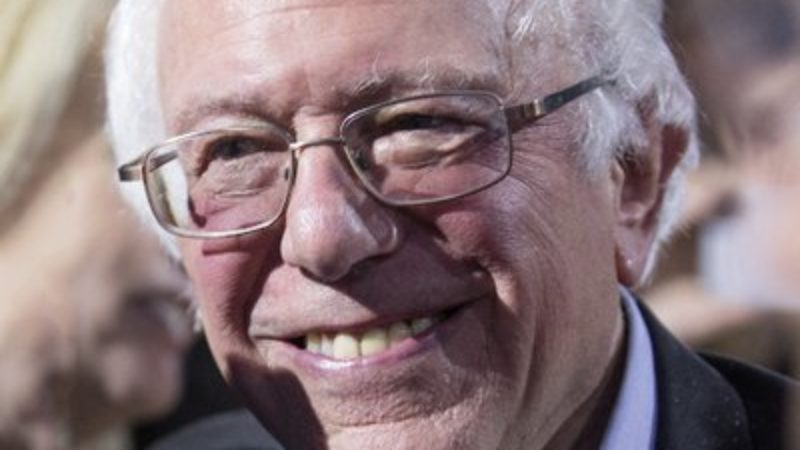

by Dan Cantor and Joe Dinkin.
In the wake of the improbable Bernie Sanders campaign, the American left is more focused than it has been in decades on translating our social movement energy into victory at the ballot box. As in Britain, the collapse of the neoliberal consensus in the United States has created new political space and opportunities on the populist, democratic socialist left, as well as on the ethno-nationalist right.
In the United States, an energised left has not always meant electoral victories. In the 1960s and 70s, U.S. social movements of the “new-left” largely avoided electoral politics, choosing instead to build protest movements, community based organisations and rebuild progressive outposts within the labour movement, where the anti-communist “red scare” from generation earlier had purged it of a good deal of its activist energy. When the WFP was founded in the 1990’s there were still many traces of this disdain for electoral politics on the left.
The American right had a different strategy: take over politics from the ground up, by invading and transforming the Republican Party. Fighting their battles one school board election at a time, the far right built up their political infrastructure, their voting base, and the talents of their elected officials. During the same period, the Democratic Party pivoted to the centre. In search of Wall Street financing and moderate “Reagan Democratic” voters, the Democrats began to pull back on regulating business, to favour market-based solutions to any problem, and to withdraw from the values of the civil rights movement. As the logic of a rigidly two party system goes, “where is our base going to go? Vote for the Republicans?”
There is a sea change underway, sped along by Bernie Sanders. Working Families Party, which grew slowly from one state party to operations in four states in our first fifteen years has exploded. Today, we have a membership base across the nation, statewide organisation in fourteen states, and local branches springing up in cities and counties. The Sanders campaign helped show millions of people a new and appealing approach to politics, and then left them hungry for continued political engagement after the campaign was over, and in search of new political homes.
Challenging Democrats by fielding insurgent candidates inside Democratic primaries is among the most potent tools we have. This was Bernie Sanders’ strategy, and in some ways, is a mirror of the far right’s approach to the Republican Party. Seen through this lens, the major parties are sites of contestation. They are the playing field, more than structures with a fixed ideology. This fight for control of the Democratic Party is playing out across a multiplicity of local elections, for state legislatures, District Attorneys, city councils and more.
We have been building a candidate recruitment and training pipeline to cultivate local leaders and prepare them to make a successful run for office. Our aim is to develop the political talents of leaders in unions, community groups, and in social movements, and bring their leadership and values into public office, starting at the bottom. Today’s school board member, is tomorrow’s state legislator, and soon, perhaps a candidate for Congress. In the long 11 months since Trump’s election, one ray of hope has been the success of progressive movement candidates running in down-ballot races. Larry Krasner, a Working Families Party-backed candidate and lawyer for the Black Lives Matter and Occupy movements, was elected District Attorney in Philadelphia, the most incarcerated city in America, running on a platform of reversing mass incarceration. Christine Pellegrino, a teachers union activist and Bernie Sander delegate, ran as a WFP-backed candidate for a state legislative seat in deep Trump country on Long Island, and won by nearly twenty points. There are dozens of such points of optimism this year. WFP is mobilizing a growing network of volunteers and campaigners to help elect many more such leaders in November, in 2018, and beyond.
We are also building structures of support and accountability for our candidates, once elected. Elected officials face numerous and powerful forces trying to advance their own agendas, from lobbyists to donors to pressure from colleagues. Working Families Party is building its capacity to support the people it helps elect to withstand the uglier angles vying for their attention and keeps them in community with other ideological, progressive elected officials and accountable to their voters and organizations.
Our aim, over time, is to define a new pole in the political discourse. If we’re successful, voters will understand Working Families Party Democrats as a distinct breed of candidate – ones who seeks to advance the goals of the social movements, and not simply climb up their own career ladder, saying whatever will help them hold onto office. That means giving both ideological progressives and also those voters alienated from politics altogether that supporting our candidates is a path to making a difference in the lives of ordinary people, and not just part of a cynical game.
Our social movements are more vibrant and better organised than they have been in a generation. But as the left has come to learn, if we leave politics to the politicians, we cannot be surprised with the results. That is why we are building connective tissue that brings social movements into politics and keeps our politicians with one foot in the streets: a path from protest, slowly but surely, to power.
Dan Cantor is the Working Families Party’s national director and chair. Joe Dinkin is the WFP campaigns and communications director.




More from LabourList
‘What Batley and Spen taught me about standing up to divisive politics’
‘Security in the 21st century means more than just defence’
‘Better the devil you know’: what Gorton and Denton voters say about by-election